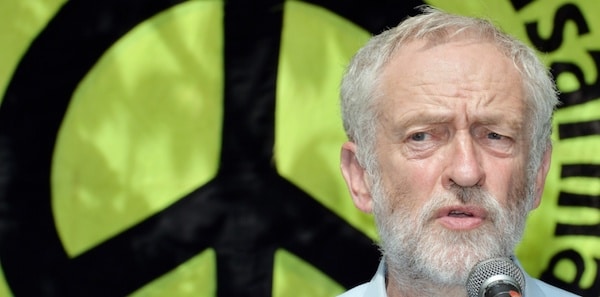We have heard a lot from some in recent days about how Jeremy Corbyn overlooks anti-semitism or excuses it.
Yet when one looks at many of those making such points there appears to be an absence of actual active opposition to those who both hold such views in Britain and act on them.
That is not something that can be said about Corbyn.
On April 23 1977 the National Front decided to march from Ducketts Common by Turnpike Lane Tube in north London down a busy London high road packed with Saturday afternoon shoppers.
There were several thousand fascists but they were outnumbered by opponents, including many people out shopping, appalled that fascists were marching on the anniversary of Hitler’s birthday.
The National Front was an avowedly anti-semitic party. It would be bad enough now but this was a mere three decades after the end of the second world war and numbers who had been actively involved in fighting Hitler were no doubt around on that spring day.
In reality only a small part of the NF march made it to a concluding rally as it was broken by protesters.
Forty years later on April 23 2017 that day was marked with a festival to celebrate diversity and oppose racism on the very same Ducketts Common.
The fascists never returned in any numbers to the borough, but the fight against racism always needs to be maintained in each generation.
One of the keynote speakers on April 23 was Labour leader Jeremy Corbyn. It was of course the kind of event that one might expect he would attend, but it is a little bit more specific than that.
In 1977, before he became the long-serving MP for Islington North, Corbyn was a trade union official and Labour councillor in Haringey for the area adjacent to Ducketts Common. He is still remembered for the hard work he did then.
Part of that was to act as the co-ordinator for all of the local Haringey councillors, including Tories, in 1977.
The councillors had called for the NF march to be banned, recognising the provocation it was designed to be. The police had declined. On the day all of the councillors assembled on Ducketts Common, before the fascists marched, holding a giant banner making clear they stood firm against racism.
But there was another group of people — anti-fascists, trade unionists, socialists — who were determined that the NF would not march.
The main aim was simply to stop them by force of numbers, but some physical engagement with the fascists was envisaged.
Using his influence Corbyn was able to act as the spokesperson for both groups of people, presenting in effect a unified protest against the NF.
Indeed the following week he was quoted in the local Hornsey Journal paper in just this role.
That day was one of the occasions that led to the formation of the Anti-Nazi League and the first huge carnival in conjunction with Rock Against Racism at Victoria Park in May 1978.
We should remember Corbyn’s role in some of the events that led to the birth of the anti-racist and anti-fascist movement that did much to stop the NF from becoming, as it threatened to in the late 1970s, a major political force.
Given that it is not unknown for labour movement leaders to develop hazy memories of how they came to be leaders in the first place, it’s also good that the current Labour leader has not forgotten those days either.

